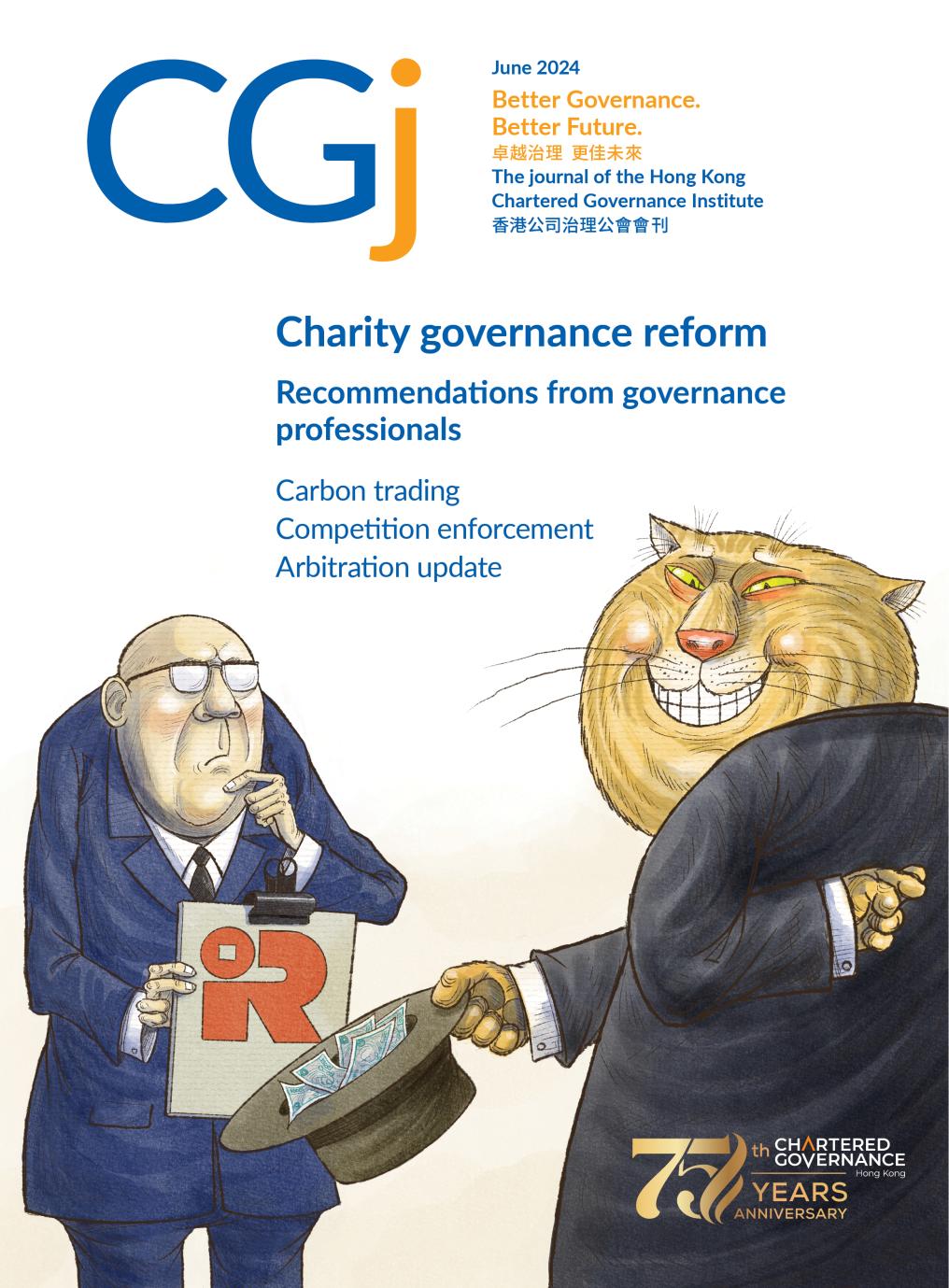The difference between London and Hong Kong arbitration
Bill Amos, Independent Arbitrator, provides a summary of the differences between the power of arbitration tribunals in London and Hong Kong, and explains the reasons behind this divergence.
Highlights
- the powers of London and Hong Kong arbitration tribunals are not the same
- a Hong Kong tribunal has power to grant interim measures and injunctions, but a London tribunal in an ad hoc arbitration does not, unless the parties have expressly agreed to confer such power
- parties in Hong Kong administered arbitrations can apply directly to the courts in the Chinese mainland in order to freeze assets
At the outset of a dispute, a party to arbitration may have an urgent need for an injunction. Common examples include the preservation of assets by way of a freezing, or Mareva order, or an anti-suit injunction to restrain proceedings in a foreign court.
There is an interesting point of difference between London and Hong Kong arbitrations, and more generally between English law and the UNCITRAL Model Law on International Commercial Arbitration (Model Law). That difference arises in the case of interim, as opposed to final, injunctions.
In short, a Hong Kong tribunal has power to grant interim measures/injunctions, but a London tribunal in an ad hoc arbitration does not, unless the parties have expressly agreed to confer such power.
The reason for the divergence is to be found in the relevant statutes.
Hong Kong
Hong Kong’s Arbitration Ordinance (Cap 609) has as its centrepiece the Model Law. The Ordinance uses an unusual technique of quoting the relevant article of the Model Law and then providing that the article in question has effect. The purpose in so doing was to make clear that Hong Kong’s statute reproduced the relevant articles of the Model Law, and thereby facilitate reference to cases and judicial interpretations in other Model Law jurisdictions.
Part 6 of the Arbitration Ordinance contains provisions on what are termed ‘interim measures’ and ‘preliminary orders’, and section 35 provides that Article 17 of the Model Law has effect: ‘Unless otherwise agreed by the parties, the arbitral tribunal may, at the request of a party, grant interim measures.’
An equivalent statement does not appear in the UK’s Arbitration Act 1996, with the result that a London tribunal has no purely statutory power by which to grant interim relief such as freezing orders or anti-suit injunctions. (This is to be contrasted with a London tribunal’s power to issue injunctions on a final or permanent basis, as stipulated in section 48 of the Arbitration Act 1996.)
The Hong Kong Arbitration Ordinance goes on to define interim measures as including, amongst other matters, orders which require a party to refrain from taking action that is likely to cause harm to the arbitral process itself (for example, anti-suit injunctions) and orders which provide a means of preserving assets out of which a subsequent award may be satisfied (such as freezing/Mareva injunctions).
The Arbitration Ordinance gives clear and familiar guidance to the tribunal on the conditions for granting interim measures. The tribunal must be satisfied that damages are unlikely to be an adequate remedy, that the balance of convenience is in favour of the grant and that there is a reasonable possibility that the applicant will succeed on the merits of the claim (section 36). In passing, it may be noted that the foregoing statutory criteria for interim measures are also reflected in Article 23 of the Administered Arbitration Rules of the Hong Kong International Arbitration Centre (HKIAC).
Ex parte applications to the Hong Kong tribunal
Of interest will be Article 17B of the Model Law, which provides: ‘Unless otherwise agreed by the parties, a party may, without notice to any other party, make a request for an interim measure together with an application for a preliminary order directing a party not to frustrate the purpose of the interim measure requested.’
In other words, an applicant may apply ex parte to the tribunal for interim relief. The Article goes on to provide that ‘the arbitral tribunal may grant a preliminary order provided it considers disclosure of the request for the interim measure to the party against whom it is directed risks frustrating the purpose of the measure.’ This is classic Mareva/freezing order territory, but whilst a preliminary order is binding on the parties, ‘it shall not be subject to enforcement by a court’ (Article 17C). That must await the tribunal’s subsequent decision as to whether to convert the preliminary order into an interim measure, having first heard from the respondent.
Enforcement
If enforcement is required of interim measures/injunctions granted by the Hong Kong arbitration tribunal, then recourse must be made to the court.
In this context it is worth noting that, separately, section 45 of the Arbitration Ordinance gives the court power to grant injunctions in aid of arbitration. It follows that an applicant for an injunction will often have a choice as to whether to apply to the court or to the tribunal.
Whilst domestically the Hong Kong court’s enforcement powers may give it the edge, the limited reciprocal enforcement of court judgments overseas may be a factor in favour of taking the arbitral route so as to seek greater worldwide recognition of the tribunal’s order.
China and Hong Kong
Before leaving Hong Kong, reference should be made to the ability of parties in Hong Kong administered arbitrations to apply directly to the courts in the Chinese mainland for injunctions and other interim measures such as freezing assets. This advantage is the result of the Arrangement Concerning Mutual Assistance in Court-ordered Interim Measures in Aid of Arbitral Proceedings by Courts of the Mainland and of the Hong Kong Special Administrative Region (2019). The benefit of being able to go to the PRC Courts for asset freezing orders in aid of administered Hong Kong arbitration is particularly valuable given the fact that interim measures granted by foreign arbitration tribunals are generally unenforceable in the Chinese mainland.
the benefit of being able to go to the PRC Courts for asset freezing orders in aid of administered Hong Kong arbitration is particularly valuable given the fact that interim measures granted by foreign arbitration tribunals are generally unenforceable in the Chinese mainland
London
In the UK, the parties are of course free to agree on the powers exercisable by the arbitral tribunal in relation to the proceedings. But unless the parties have agreed to confer on the tribunal the power to order on a provisional basis any relief which it would have power to grant in a final award (for example, an injunction), the tribunal has no such power (section 39 of the Arbitration Act 1996).
As regards general powers exercisable by the tribunal, section 38(4) provides that: ‘The tribunal may give directions in relation to any property which is the subject of the proceedings or as to which any question arises in the proceedings, and which is owned by or is in the possession of a party to the proceedings … (a) for the inspection, photographing, preservation, custody or detention of the property ….’
So, an asset preservation order would be available from the tribunal, but only if that asset was the subject of the arbitration proceedings and owned by or in the possession of a party.
In other situations where there is a risk of dissipation of assets, a party to ad hoc arbitration proceedings in London would need to apply to the High Court for a freezing order. Section 44 of the Arbitration Act provides that the court has in relation to arbitral proceedings the same power to grant an interim injunction or appoint a receiver as it has for the purposes of litigation proceedings. If the case is one of urgency, the court may, on the application of a party, make such orders as it thinks necessary for the purpose of preserving assets or evidence.
Administered arbitration
In contrast, in arbitrations seated in London where the parties have agreed to a process administered by institutions such as the London Court of International Arbitration (LCIA) or the International Chamber of Commerce (ICC) International Court of Arbitration, the tribunal will by virtue of the relevant rules have power to grant interim measures. For example, Article 25 of the LCIA Arbitration Rules 2020 confers on the tribunal power to order interim and conservatory measures, ‘after giving all other parties a reasonable opportunity to respond to such application’. Similarly, the 2021 Arbitration Rules of the ICC stipulate in Article 28 that: ‘Unless the parties have otherwise agreed, as soon as the file has been transmitted to it, the arbitral tribunal may, at the request of a party, order any interim or conservatory measure it deems appropriate ….’
Emergency arbitrator
In addition, the parties to administered arbitration will invariably have the benefit of the emergency arbitrator provisions under the relevant institutional rules. The emergency arbitrator procedure enables protective relief to be granted before the formation of the tribunal, by appointing an independent person as an emergency arbitrator. This is a swift appointment process in comparison to the months sometimes needed for establishing a three-person tribunal. The emergency arbitrator is required to make a decision on the application for emergency relief by no later than 14 days from the appointment. They will have no further involvement in the proceedings and will not be appointed as an arbitrator in the tribunal to hear the substantive dispute. Any order made by the emergency arbitrator may subsequently be revoked or varied by the full tribunal once appointed.
Given that emergency arbitrator proceedings are generally made on notice to the respondent and heard between the parties, they are unlikely to be suitable where there is an imminent risk of removal of assets or destruction of evidence. Further, cross-border enforcement of interim measures and awards may be problematic, in contrast to the clear enforceability of final awards under the New York Convention. It follows that, in most cases of urgency involving a risk of dissipation of assets, a party would be likely to apply directly to the court under section 44 of the Act.
The emergency arbitrator role is a relatively recent innovation, and so the reforms to the Arbitration Act 1996 will take account of this development. The recently proposed amendments to the Arbitration Act are not expected to alter the powers of the tribunal as described above.
Conclusion
The UK’s Arbitration Act reflects an expectation that urgent applications for injunctions are to be left to the courts, at least as regards disputes referable to ad hoc arbitration. Given the availability of duty judges for urgent business, this approach can have advantages in terms of speed and also enforceability.
In contrast, an applicant for an interim injunction in Hong Kong may need to choose between the court and arbitral routes. As described above, Hong Kong tribunals have the power to grant interim measures even in ad hoc arbitrations. And, where the arbitration is administered by approved authorities such as HKIAC, ICC, the China International Economic and Trade Arbitration Commission or the Hong Kong Maritime Arbitration Group, the ability to obtain asset freezing orders from the court in the Chinese mainland is a unique advantage.
In the case of interim measures and injunctions, Hong Kong arbitration gives its users a range of options, which are in many respects unparalleled.
Bill Amos, Independent Arbitrator
This article was first published in the April 2024 edition of Hong Kong Lawyer, the official journal of The Law Society of Hong Kong. The author can be contacted on: arbitrator@billamos.com, or via his website: https://www.billamos.com/.



